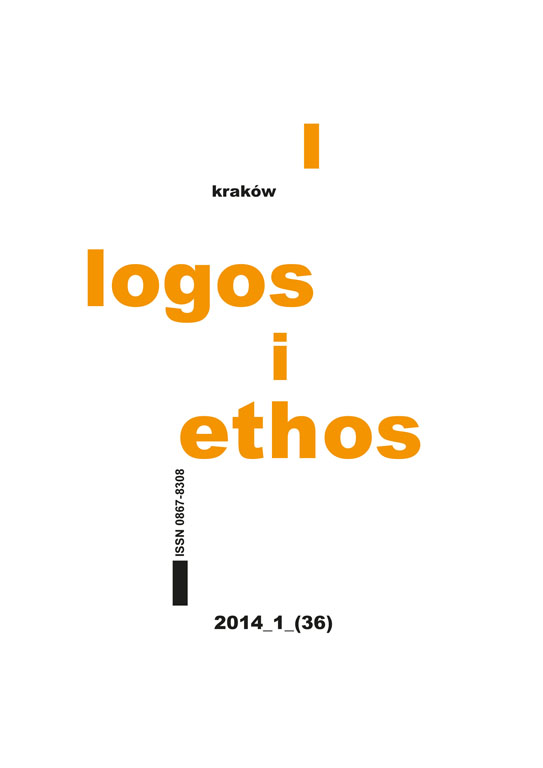Aquinas’ concept of change and its consequences for corporeal creatures
DOI:
https://doi.org/10.15633/lie.34Słowa kluczowe:
Aquinas’ philosophy, corporeal creatures, actualisation, potentiality, change, imperfectionAbstrakt
This paper is a presentation of Aquinas’ concept of change (lat. mutatio) and its consequences for corporeal creatures (lat. creatura corporali). Within Thomas’ philosophy, it can be proved that creatures are sentenced to unceasing change and cannot stop changing. That’s why the very purpose of change – full actualisation – is never attainable. Creatures are imperfect beings, and ex sui natura cannot attain perfection. Such a vision can lead to a conviction that the world of corporeal creatures is absurd. A short solution to the problem of absurdity is given with the use of Aquinas’ concept of participation.
The structure of this paper is as follows. In the first section some basic limitations for the sake of this paper are made. In the second the concept of corporeal creatures is outlined. The third section analyses the definition of change. The fourth one presents various kinds of change. The next three are, respectively, proof of the creatures’ unceasing change, impossibility of full actualisation, and imperfection. The last one is an abbreviated presentation of the concept of participation as a reply to the question of the world’s absurdity.
Bibliografia
Aristotle, Physics, Book III and IV, 201a10, transl. E. Hussey, Oxford 1993.
Coreth E., Grundriss der Metaphysik, Innsbruck–Wien 1994.
Goheen J., The Problem of Matter and Form in De Ente et Essentia of Thomas Aquinas, Harvard 1940.
Kainz H. P., “Active and Passive Potency” in Thomistic Angelology, The Hague 1972.
Kenny A., Aquinas on Being, Oxford 2002.
Martin Ch., The Philosophy of Thomas Aquinas. Introductory reading, ed. Ch. Martin, London–New York 1988.
Świeżawski S., Św. Tomasz na nowo odczytany, transl. M. Dziurosz, Poznań 1995.
Thomas Aquinas, Expositio super Librum Boethii de Trinitate, Q.5, art.2, [in:] Selected Philosophical Writings: Thomas Aquinas, ed. T. McDermott, Oxford 1993.
Pobrania
Opublikowane
Numer
Dział
Licencja
Prawa autorskie (c) 2014 Dominika Dziurosz-Serafinowicz

Utwór dostępny jest na licencji Creative Commons Uznanie autorstwa 4.0 Międzynarodowe.
Autorzy publikujący w czasopiśmie udzielają jego wydawcy zgody o następującej treści:
- Autor zachowuje autorskie prawa majątkowe do utworu, a jednocześnie udziela wydawcy czasopisma zgody na jego pierwszą publikację w wersji drukowanej i wersji online na licencji Creative Commons Uznanie autorstwa 4.0 Międzynarodowe oraz zgody na wykonywanie opracowań, w tym przekładów.
- Autor ma możliwość udzielania zgody niewyłącznej na opublikowanie utworu w wersji, która ukazała się w czasopiśmie (np. zamieszczenia go w repozytorium instytucjonalnym lub opublikowania w książce), wraz z informacją o jego pierwszej publikacji w czasopiśmie.
- Autor może umieścić swój utwór online (np. w repozytorium instytucjonalnym lub na swojej stronie internetowej) jeszcze przed zgłoszeniem utworu do czasopisma.

